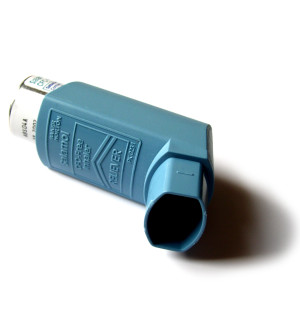- Could Your Grocery Store Meat Be Causing Recurring UTIs?
- Are You Making This Expensive Thermostat Error This Winter?
- Recognizing the Signs of Hypothyroidism
- 10 Strategies to Overcome Insomnia
- Could Artificial Sweeteners Be Aging the Brain Faster?
- Techniques for Soothing Your Nervous System
- Does the Water in Your House Smell Funny? Here’s Why
- Can a Daily Dose of Apple Cider Vinegar Actually Aid Weight Loss?
- 6 Health Beverages That Can Actually Spike Your Blood Sugar
- Treatment Options for Social Anxiety Disorder
Cat, Dust Mite Allergies Linked to Childhood Asthma


Toddlers and preschoolers with cat and dust mite allergies may face an increased risk for asthma later in childhood, a preliminary study suggests.
The research included almost 500 children from Cincinnati. The youngsters had allergy skin prick tests for four common indoor allergens — cat, dog, cockroach and dust mite. The tests were done at ages 1, 2, 3 and 4 years. The children were tested for asthma at age 7.
Children with year-to-year positive tests for cat and dust mite allergies had an increased risk of having asthma by age 7, according to the study. The researchers didn’t find a link between other tested allergens and the development of asthma, however.
Although the current research found an association between cat and dust mite allergies and asthma risk, it wasn’t designed to show whether these allergens could cause asthma.
The study was to be presented Monday at the American Academy of Allergy, Asthma & Immunology (AAAAI) annual meeting in Houston.
“More research is needed, but it appears year-to-year skin prick tests may distinguish between allergic children and identify who is at the highest risk for developing asthma,” first author Dr. Jessica Tan said in an AAAAI news release.
“We believe that the patterns of skin testing positive over three years can predict who is more likely to develop asthma by age 7 for children who have family history of allergic diseases,” she added.
General risk factors for developing asthma include a parental history of asthma, wheezing induced by viral illness, and the skin condition eczema, according to Tan. She suggested that based on the findings, allergies to cats and dust mites may also be risk factors for developing asthma.
More information
The American Academy of Pediatrics has more about allergies.
Source: HealthDay
Copyright © 2026 HealthDay. All rights reserved.










